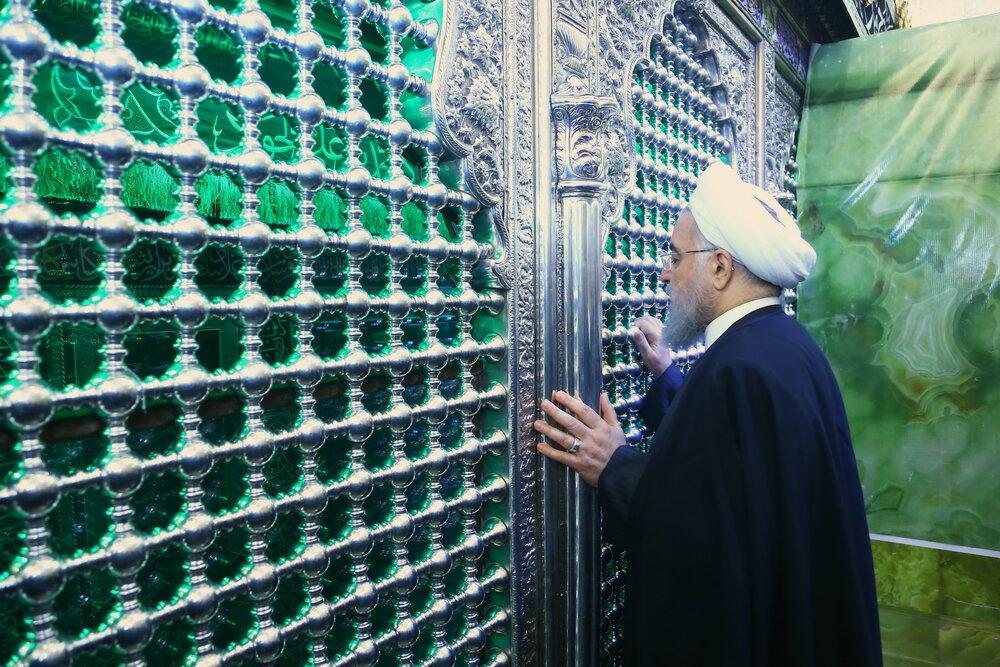By M.A. Saki

The two nations of Iran and Iraq are bonded together by geography and more importantly religion, especially in the form of Shia Islam.
The religious bonds that have linked the Iranian and Iraqi people are quite clear in rituals marking Arbaeen during which millions of Iranians pour into Iraq to visit the shrine of Imam Hussein (AS) in Karbala. The great march of Iranians toward Karbala during the Arbaeen pilgrimage is now famous in the world.
Add to these millions of Iraqi pilgrims who visit the shrines of Imam Reza (AS) and Hazrat Masumeh (SA) inside Iran and hundreds of thousands of Iranians who frequently visit the shrine cities of Karbala, Najaf, and Samarra, Kadhimiya in northern Baghdad.
The love for Shia imams has been so strong that even repeated terrorist attacks on pilgrims when Iraq was not in a good shape in terms of security could not deter Iranians from visiting the shrines in Iraq.
Also, Iranian and Iraqi Kurds are linked together in terms of ethnicity and language. Even Lors in western Iran, who see themselves linguistically and ethnically close to the Kurds, have strengthened this sense of solidarity between Iranians and Iraqis. Similarly, ethnic Arabs in the southwestern province of Khuzestan also cherish Iraq.
No official in Washington, no matter how much mad he might be, can deny this strong feeling between Iranians and Iraqis.
It is for this reason that in his talks with President Hassan Rouhani in Baghdad on Monday, President Barham Salih, an ethnic Kurd, said, “I consider the Iranian nation as our family and consider Iran as our second homeland.”
Iran was home to some former and current Iraqi leaders, both Kurds and Shias, who led struggles against Saddam Hussein during his ruthless reign of Iraq. Even some religious leaders like Ayatollah Ali Sistani, who is considered a very wise figure and played a key role in defusing sectarian violence in Iraq, is originally Iranian.
Let’s cite a memory. An Iranian photojournalist, who had travelled to Iraq to make a documentary, said he went to a small shop to buy cigarettes. He said when he started to speak in English with the salesclerk he was immediately told to speak in Farsi. The photojournalist said he asked the salesclerk “how did you learn Farsi?” to which he responded: “I learnt Farsi when I was a prisoner of war in Iran”. The photojournalist said the Iraqi salesclerk was even hanging a photo of Ayatollah Ruhollah Khomeini on the wall of his shop.
This instance by itself shows that even Saddam Hussein’s war against Iran in the 1980s, which left hundreds of thousands of deaths on both sides, failed to break the strong friendship between the Iranian and Iraqi people.
There are many reasons to cite why Iran and Iraq have good memories of each other despite the wounds left from Saddam’s invasion of Iran.
In view of these facts, those who are against the good relationship between Iraq and Iran are better to consult a psychologist and talk to a sociologists to find about this sense of amity, although hatred of Iran in some people like John Bolton, Mike Pompeo and Saudi Crown Prince Mohammed bin Salman are so excessive that they do not care about such facts.
Iran was the first country that recognized the post-Saddam governing system in Iraq in 2003. Iran’s timely military support for Iraq when Daesh (ISIS) launched a sudden and rapid attack on Iraq from Syria in June 2014 is clear to the Arab world and the West and the Iraqis, both Arabs and Kurds, are thankful of this.
Saudi Arabia, which considers itself an ally of Washington, made great efforts to undermine the post-Saddam Iraq. Also, intelligence evidences showed that Saudi nationals formed the second largest number of terrorists in Iraq when Daesh was committing indescribable crimes in the country. Riyadh was also so angry of the ruling Iraqi system that it refused to establish diplomatic ties with Baghdad until December 2015.
However, the U.S., instead of being thankful to Iran for its approach toward the post-Saddam Iraq, has intensified its hostility against Iran by quitting the international 2015 nuclear deal and reimposing sanctions on the country.
Now, ignorant or oblivious of all these facts, the Trump administration is pressing Iraq to join the anti-Iran sanctions without knowing that even eight years of war failed to separate Iranians and Iraqis.
From an objective anthropological and sociological point of view, these two nations see themselves close together.

No comments:
Post a Comment